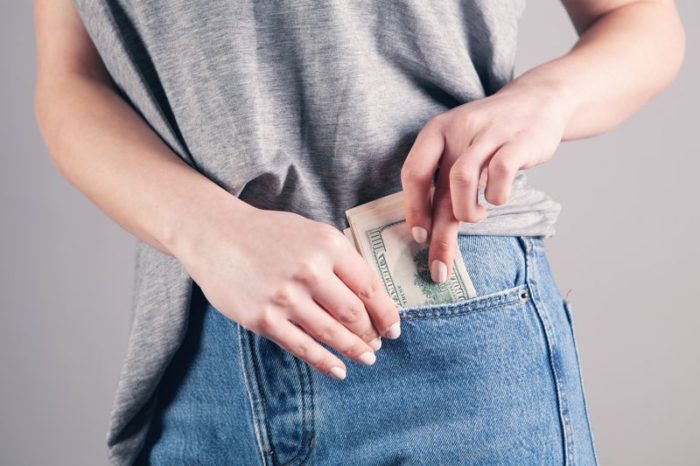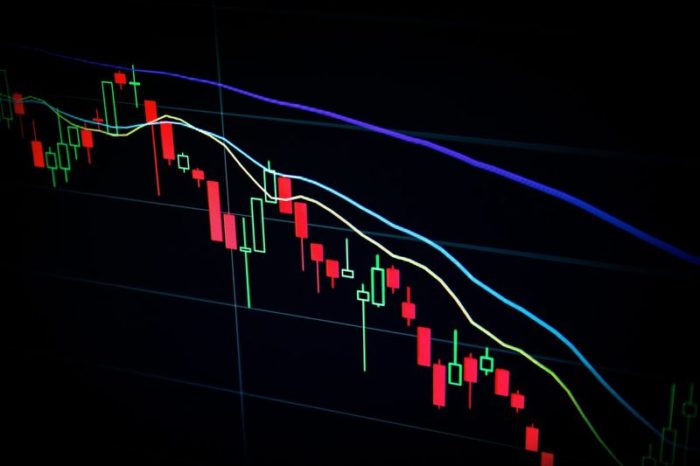
If you’re new as an investor, you likely know the market has seen some volatility that either makes you excited or puts you into panic mode. So, what should you do when the market experiences volatility?
Quick Overview
- Explaining Volatility
- Different Markets Experience Different Volatility
- Market Crash Rates and Recovery Vary
- How to React to Market Volatility
- Remember to Save
- Make a Plan
Explaining Volatility
Market volatility is when an investment goes up or down in value at any given point in time. Bitcoin, for example, could be priced at $40,000 one day and $45,000 the next, or vice versa.
Different Markets Experience Different Volatility
Each market experiences volatility differently depending on its level of risk. Cryptocurrency is an example of a higher-risk asset that frequently sees high volatility. Stocks are considered a lower-risk investment that experiences less volatility.

As explained above, the price of a cryptocurrency such as Bitcoin could be at an all-time high of $100,000 one day but suddenly tank to $20,000 the next. This example is demonstrated by the recent drop in Bitcoin’s price when it fell by 30% within one day, months after it reached an all-time high of $68,000.
On the other hand, the stock market experiences less volatility because it is a safer investment due to its reliable returns and long-term steady growth. Like cryptocurrency, the stock market is susceptible to volatility. The stock market crash of 1929 and 2008 are two good examples of this.
Before the Great Depression, the Dow, a stock market index that tracks large publicly traded companies, reached peak values before falling 90% between 1929 and 1932. In 2008, the stock market dropped to 50% in value within 18 months. Recently, though, the stock market rallied to an all-time high in early January 2022 after a brief stint where it dropped in value, caused by rising inflation and the COVID-19 pandemic.
Market Crash Rates and Recovery Vary
In every event where the stock market has crashed, it has recovered. Albeit, the rate at which it has fallen and recovered has varied. For instance, it took 25 years for the market to recover to its previous levels before the crash of 1929.
How to React to Market Volatility
Learning how to react to market volatility takes some practice, but here are some ways to best handle it:
Don’t Let Emotions Control You

Humans are emotional beings, and there’s nothing wrong with that. The challenge is we tend to let our emotions get in the way when we see the markets crashing or skyrocketing. Remember that market volatility is typical.
Resist the temptation to sell out of fear when the market crashes. Sometimes, shortly after a crash occurs, the markets will rise higher than when they first fell. By selling early, you could potentially miss out on profits.
Diversify Your Portfolio
Diversifying your portfolio is one of the best ways to deal with market volatility. With a well-diversified portfolio, you minimize your risk and experience less volatility. Many investments react differently to the markets, so even though one asset might go down in value, another could rise. This strategy won’t eliminate any risk of loss, but it will help to mitigate it.
Think Before You Act
Sometimes, taking the time to think about your decision to sell or buy can help you save or make money. Take some time to do a little research if necessary and read up on what financial experts are saying. Don’t let your emotions think for you.
Remember to Save
We aren’t suggesting that you stop investing or saving. Volatility is a good reminder to save. Why? The next time the market crashes, or there’s an opportunity to invest, you’ll be ready for it.
If you’re concerned about where the market is heading, using a high-yield savings account is an ideal way to save and protect your money. Alternatively, you can use it as an emergency fund.
We recommend our PrizePool app, as you can win weekly cash prizes and earn interest paid out monthly. All deposits are stored with our bank partner, Evolve Bank & Trust, Member FDIC. It’s the perfect way to store and grow your money as you wait for the right opportunity to invest or save for a rainy day.
Make a Plan
Volatility can lead to irrational decisions. If anything, make a plan before the next market crash or rally happens so you will know what to do.